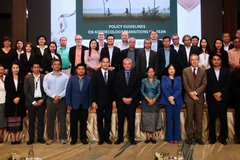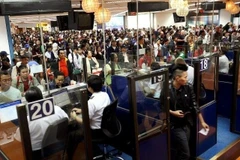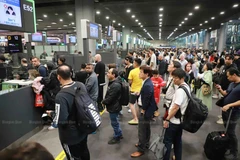Kuala Lumpur (VNA) – Though Malaysia is making great strides in its effort to become a major player in the global semiconductor industry, analysts warn that the country still faces tough challenges and obstacles.
Experts said internal constraints such as a talent crunch, funding problems, and other supply chain gaps are key hurdles the country must overcome if it wants to compete with top industry giants such as Taiwan (China), the Republic of Korea (RoK), and Japan.
Shafiq Kadir, an equity analyst at CGS International, said local integrated circuit (IC) design houses face challenges in accessing large-scale funding, and lack a pool of experienced engineers.
One of the main reasons is that the country’s higher education system is not yet well-prepared to produce graduates with right skills, he said.
Sharing the view, President of the Malaysia Semiconductor Industry Association Wong Siew Hai said although Malaysians have experience in working with multinational companies, many choose to work abroad for higher salaries and better career advancement opportunities.
In a deal signed on March 5, Malaysia will pay Softbank-owned Arm 250 million USD over a decade to access its intellectual property. The deal also includes the training of 10,000 local semiconductor engineers.
The Malaysian Government’s 5.3-billion-USD allocation over the next decade to upscale Malaysia’s semiconductor sector is considered small compared with state investments by China and the US.
Shafiq said the tools and equipment required for chip production could run into billions of US dollars – apart from the need for highly skilled engineers and operators, adding that competing with semiconductor powerhouses will not be easy as they developed the ecosystems to support technological leadership in the past few decades.
Malaysia’s semiconductor exports were valued at 387.98 billion RM (87.52 billion USD) in 2024, making the country one of the world’s top 10 chip exporters, according to the Malaysia External Trade Development Corporation.
The Malaysia Semiconductor Industry Association is aiming for the country’s chip exports to reach 270 billion USD by 2030./.



























